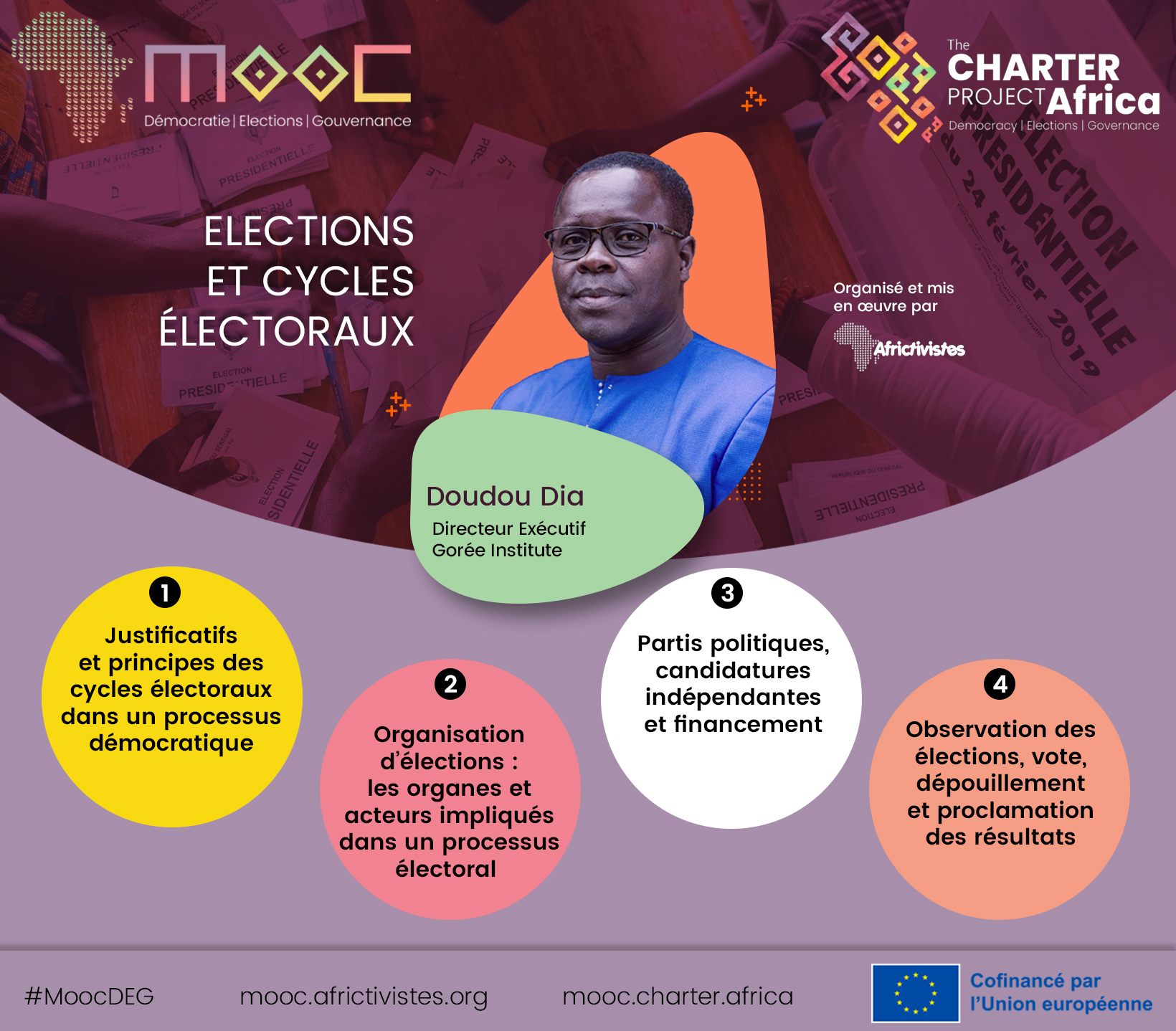
Élections et cycles électoraux
Description
The expression of universal suffrage is an essential right of the people in accordance with the African Union's Declaration on the principles of democratic elections in Africa and article 17 of the ACDEG.
Regular and transparent elections have essential prerequisites including electoral systems, appropriate electoral laws and electoral bodies, among others... In terms of election management institutions, the most common in the continent are independent or autonomous electoral commissions, joint electoral commissions and government electoral commissions.
A clear definition of roles helps to minimise or prevent the incumbents’ influence (in a presidential election) on the process. Election stakeholders must also be guaranteed prerogative rights to ensure the smooth running of an election.
Objectives
The purpose of this course is to highlight the importance of holding regular, free, fair and transparent elections, conducted by competent, independent and impartial national electoral bodies in the smooth progression of democracy in the continent
-Helping to better understand electoral processes in Africa
Providing high-value content about electoral cycles and processes
-Providing high-value content about electoral cycles and processes
-Assisting in raising awareness among citizens regarding the involvement of young people in electoral processes
Aider à une meilleure compréhension des processus électoraux en Afrique
Fournir des contenus à forte valeur ajoutée à propos des cycles et processus électoraux
Aider à une meilleure prise de conscience citoyenne quant à la participation des jeunes aux processus électoraux
Course outline
- Rationales and principles of electoral cycles in a democratic process (legal framework and electoral codes)
- Organising elections: the bodies and actors involved in an electoral process (Anglophone vs. Francophone countries)
- Political parties, independent candidates and funding
- Observation of elections, voting, counting and declaration of results (Anglophone vs. Francophone countries)
- Election security and electoral crises: Complaints, disputes and tampering
Course prerequisites
The Democracy, Elections and Governance (DEG) MOOC is free and open to everyone.
Evaluation
A quiz at the end of each module will allow participants to assess themselves. This evaluation will be based on the content of the videos. In addition to this systematic evaluation, participants will have the opportunity to ask open questions on the MOOC forum.
Teaching team
Course instructor: Mr Doudou Dia, Gorée Institute Director
Course coordinator: Maurice Thantan, Scientific Production Manager, Charter Project Africa.
| Dernière mise à jour | 27/06/2022 |
|---|---|
| Temps d'achèvement | 1 heure 5 minutes |
| Membres | 991 |
-
Module 11Leçons ·
-
Justificatifs et principes des cycles électoraux dans un processus démocratique
-
-
Module 22Leçons ·
-
Partie 1: Les organes et acteurs impliqués dans un processus électoral
-
Partie 2: Les organes et acteurs impliqués dans un processus électoral
-
-
Module 31Leçons ·
-
Observation Électorale
-
-
Certification1Leçons ·
-
Élections et cycles électoraux
-